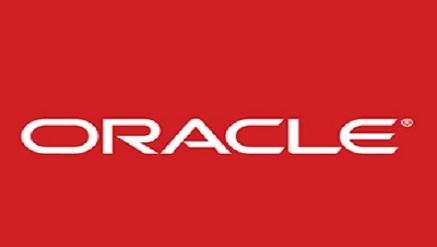E-Business
Cloud Enables 92% of Organisations to Innovate Faster- Oracle Research

More than 90% of enterprises believe the cloud enables them to innovate faster, new research from Oracle reveals.
The study, conducted by IDG Connect on behalf of Oracle, finds that half (51%) of businesses will have reached cloud maturity within two years, while the concerns and considerations around moving to the cloud have evolved.
For hybrid cloud adoptions, traditional barriers, such as concerns over security, are being displaced by operational concerns such as managing multiple IT architectures and network bandwidth. Those building private cloud infrastructures continue to see security as the prime concern.
Respondents also cited “winning the support of key business decision-makers” as the most important building block of successful private and hybrid cloud infrastructures, suggesting that influence on cloud deployments extends beyond IT into broader business functions.
These figures suggest that the CIO’s role is more important than ever in coordinating multiple architectures and effectively communicating the benefits of cloud deployments to the wider business.
Key Findings From The Research Include:
“92% of respondents say that the cloud enables them to innovate faster; 73% said it helps to retain existing customers; and 76% said it helps them to win new customers
“One-in-five businesses (19%) have reached ‘cloud maturity’, with more than half (51%) saying that they will reach maturity within two years.
“Respondents identified the most important building blocks for successful hybrid cloud deployments as winning the support of key business decision-makers (29%), cost efficiency (25%) and building a strong relationship with a supplier (22%)
“The biggest barriers to hybrid cloud adoption are managing multiple IT architectures (60%), network bandwidth (57%) and relationship with IT supplier (52%)”
Johan Doruiter, Oracle’s senior vice president of Systems in EMEA, commented: “As cloud rapidly reaches maturity, we are seeing a shift in how enterprises perceive the chief benefits and barriers to adoption. Traditional areas of high concern such as data security and reliability are moving down the list and these are actually cited as key benefits of cloud adoption by most enterprises.
“These traditional concerns have been replaced by the operational worries, including how to manage multiple IT architectures and ensuring networks have sufficient bandwidth. For enterprises that are reaching maturity with their cloud deployments, it’s increasingly important to be able to manage public, private and hybrid deployments through a single, consolidated view.”
”We see an understandable difference in security focus between private and hybrid cloud deployments”, said Bob Johnson, Vice President and Principal Analyst, at IDG Connect..
“For companies focusing on private cloud deployments, security is a prime concern, indicating that enterprise workloads are moving into the cloud. Organizations with the hybrid mix of on-premise and public cloud services have realized the benefits of opening up their infrastructures to partners and customers, and as a result are open to a corresponding enhancement of the strength, maturity and sophistication of their security systems.”
E-Business
Chams Carves Out Subsidiary to Support Africa’s Digital Transformation

Chams Holding Company Plc, (Chams Holdco), digital payments and verification firm, has created a new subsidiary which is expected to strengthen the push for Africa’s digital transformation.

The creation of the new subsidiary, ChamsCorp Plc, which took effect from February 1, was made known in a filing to the Nigerian Exchange Limited , according to an announcement.
Chams said that the new subsidiary, which is its 5th, will give a new dimension to its more than 40 years of work in building the digital ecosystem not only in Nigeria, but across the continent and the rest of the world.
The newly created company will focus on three major aspects, namely the manufacturing of digital devices and development of digital infrastructure and services; data center design, construction and operations, and the development and implementation of AI infrastructure and intelligent systems.
It will also contribute to its parent company’s digital ID, digital verification, and trust services offering.
“For nearly four decades, we’ve enabled trust in transactions and identity. Now, we go furthe”
Chams is expanding into AI, data centre infrastructure, and intelligent systems, building the backbone for Africa’s digital transformation,” the company wrote in a LinkedIn post.
“We are not just participating in the future. We are engineering it,” the message added.
According to the Chams announcement, a decision of its Board of Directors appointed members of the pioneer board of ChamsCorp Plc, with renowned banker Mohammed Bashir Yunusa designated as Chairman.
He is described as a well-known finance expert who specializes in deal structuring, corporate and retail finance, business strategy, digital transformation, and Islamic Finance and Banking.
With more than 10 years of experience in the financial services industry, Yunusa currently serves as head of Consumer and Digital Banking for Non-Interest Banking Retail at Sterling Bank Nigeria, and will also serve as a non-executive director on the board.
“Chamscorp is designed to take our most ambitious ideas to market at speed and scale. As Africa’s digital economy evolves, we are focused on delivering transformative solutions that empower governments, businesses, and citizens alike,” Femi Oyenuga, CEO, Chams, commented on the development.
Chams has over the years played a major role in contributing to Nigeria’s digital ID ecosystem development to facilitate access to financial services.
In 2023, the company Group Chairman publicly stated that in providing such digital services to the Nigerian government, it had incurred debts estimated at $100 million and were planning to change their business model as a result.
E-Business
Nigeria, South Africa Drive Stablecoin Spending in Africa

Africa has emerged as the global frontrunner in stablecoin adoption, with Nigeria and South Africa leading the charge with the fastest adoption rate, as transactions surge across the continent.

This is according to the Stablecoin Utility Report, compiled by YouGov on behalf of fintech firm BVNK.
The study, conducted in partnership with Coinbase and Artemis, surveyed over 4 600 early adopters and crypto-natives in 15 countries across five continents.
It shows people are turning to stablecoins to move money more quickly, securely and affordably – and how this shift in behaviour is becoming a worldwide trend beyond its roots in the Global South.
Stablecoin adoption is accelerating particularly rapidly across Africa in 2026, driven by currency volatility, high inflation and the need for cheaper, faster cross-border payments, it finds.
The Stablecoin Utility Report shows that 79% of African respondents hold stablecoins − the highest ownership rate globally − while 76% say they intend to acquire them in the near future.
Nigeria and SA lead the continent in everyday stablecoin spending, highlighting a shift from holding digital dollars as a store of value, to actively using them for commerce.
The appetite to be paid in stablecoins is even stronger: 95% expressed interest in receiving income via dollar-pegged digital assets, whether for salaries, freelance work or cross-border services, according to the study.
Anthony Yim, co-founder and CEO of crypto research firm Artemis, explains: “We’re experiencing a significant behavioural shift in the way people are using stablecoins.
“Crypto natives and early adopters are fully on board with stablecoins, using them to pay and be paid. This is driving mainstream, global adoption – stablecoin supply has increased 500% over the past five years. Alongside the passage of multiple legislation initiatives in numerous countries, it’s clear we’re experiencing a tipping point.”
From hedge to household spending
Unlike in some developed markets where stablecoins are viewed primarily as a payments upgrade, African users are deploying them as practical financial tools. Key use cases include hedging against inflation, facilitating remittances and funding day-to-day purchases.
The report finds that 92% of African respondents say the condition of their national economy directly affects their stablecoin usage − a reflection of currency volatility, capital controls and high remittance costs across several markets.
Africa also recorded the highest likelihood globally (89%) of users adopting stablecoin-linked debit cards, signalling demand for tighter integration between digital assets and traditional payments.
Infrastructure, not ideology
Taken together, the findings reinforce a broader thesis: stablecoins are evolving beyond a payment method into payments infrastructure, states the report.
For individuals, this means receiving income faster and at lower cost. For businesses, it enables borderless treasury operations and supplier payments. For financial platforms, it opens opportunities to embed stablecoin wallets, debit cards and cross-border settlement into core offerings.
This demand for institutional-grade integration is evident globally, with 77% of survey respondents saying they would open a stablecoin wallet if offered by their primary bank or fintech provider.
As adoption deepens in Africa and regulatory frameworks mature in developed markets, the data suggests stablecoins are no longer a niche crypto product − but a structural layer in the future of global money movement, notes BVNK.
E-Business
Kaspersky Reports 15% Growth in Malicious email Attacks in 2025

According to Kaspersky telemetry, almost every second email – 44.99% of global traffic – was spam in 2025. Spam consists not only of unsolicited emails, but can also include various email threats such as scam, phishing and malware.

In 2025, individuals and corporate users encountered over 144 million malicious and potentially unwanted email attachments, representing a 15% increase compared to the previous year figures.
In 2025, APAC had the largest share of email antivirus detections: it reached 30%, followed by Europe with 21%. Next came Latin America (16%) and the Middle East (15%), Russia and CIS (12%) and Africa (6%). As for individual countries, China had the highest rate of malicious and potentially unwanted email attachments, with the share of email antivirus detections of 14%. Russia ranked second (11%), followed by Mexico (8%), Spain (8%) and Turkey (5%).
Email antivirus detections peaked moderately in June, July and November.
Key trends in email spam and phishing
Kaspersky’s annual analysis has also identified several persistent trends in the email spam and phishing threat landscape that are expected to continue into 2026:
- Combination of various communication channels. Attackers lure email users into switching to messengers or calling fraudulent phone numbers. For instance, scam investment mailings may redirect victims to fake websites, where they are asked to provide their contact information, and then cybercriminals will follow up with a phone call.
- Usage of diverse evasion techniques in phishing and malicious emails. Threat actors frequently try to disguise phishing URLs, for example, with the help of link protection services and QR codes. These QR codes are often embedded directly in email bodies or within PDF attachments, which not only conceals phishing links but also encourages users to scan them on mobile devices, potentially exploiting weaker security measures than corporate PCs.
- Mailings exploiting diverse legitimate platforms. For example, Kaspersky experts discovered a fraudulent tactic that abuses OpenAI’s organisation creation and team invitation features to send spam emails from legitimate OpenAI addresses, potentially tricking users into clicking scam links or dialing fraudulent phone numbers. Additionally, a calendar-based phishing scheme, which originated in the late 2010s, resurfaced last year with a focus on corporate users.
- Refining tactics in business email compromise (BEC) attacks. In 2025 attackers attempted to become even more persuasive by incorporating fake forwarded emails into their correspondence. These emails lacked thread-index headers or other headers, making it difficult to verify their legitimacy within an email conversation.
“Email phishing shouldn’t be underestimated. Our report reveals that one in ten business attacks starts with phishing, with a significant proportion being Advanced Persistent Threats (APTs). In 2025, we saw an increase in the sophistication of targeted email attacks. Even the smallest details are meticulously crafted in these malicious campaigns, including the composition of sender addresses and the tailoring of content to real corporate events and processes.
“The commodification of generative AI has significantly amplified this threat, enabling attackers to craft convincing, personalised phishing messages at scale with minimal effort, automatically adapting tone, language and context to specific targets,” comments Roman Dedenok, anti-spam expert at Kaspersky.

 News3 days ago
News3 days agoAfrican Leaders Highlight Africa’s AI Ambitions

 General News3 days ago
General News3 days agoNDPC Orders Probe into Temu over Alleged Data Privacy Breaches

 Telecom3 days ago
Telecom3 days agoMTN, BUA, Dangote & Other Industry Giants Triumph at NGX Made of Africa Awards

 Telecom2 days ago
Telecom2 days agoTerra Moves to Expand in African Drone Sector, Secures $22m Funding

 Telecom3 days ago
Telecom3 days agoX Suffers Global Outage, Millions Barred from Access

 Telecom3 days ago
Telecom3 days agoNigeria’s Internet Users Hit 148.2m Amid Data Cost Surge

 News3 days ago
News3 days agoLG Nigeria Begins Nationwide Search for Oldest Working TV, Rewards Loyalty with AI QNED Upgrade

 Telecom2 days ago
Telecom2 days agoTemu Assures Compliance Amid Nigeria Data Privacy Probe














